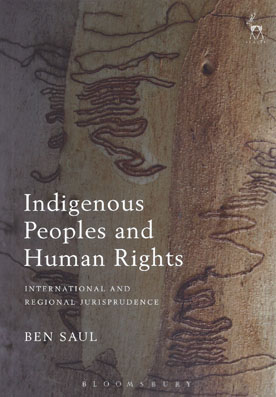
This book provides a comprehensive examination of the treatment of Indigenous peoples in international law and from a comparative law perspective.
While it is scholarly in approach, it is also intended to be used as a textbook for university students, and therefore covers a broad range of topics relevant to the study of Indigenous People and International Law.
The book first considers the theory and practice of international law in encounters between Indigenous peoples and European colonial powers. It examines the prevailing legal doctrines governing acquisition of title to territory (including terra nullius, discovery, occupation, conquest and treaties), underlying concepts of sovereignty, authority and self-determination, and competing theoretical approaches to conceptualising Indigenous legal interests.
The book then investigates how domestic legal systems applied, ignored or challenged relevant international law norms during the colonial era and explores the dominant legal discourses operating at the national level.
The book goes on to consider how international law has progressively developed to enable Indigenous peoples to challenge their treatment in national legal systems, particularly through the human rights machinery and political organs of the UN. It looks at how, after the independence of settler societies, national legal systems - often using international law tools - were used (or challenged) by Indigenous peoples seeking reparation for historical injustices. The promise and limitations of international and national legal strategies of redress are evaluated in light of social and political approaches to redress.
The book draws on the colonial and post-colonial experiences of Indigenous peoples across Australasia, America and Canada, Africa, the Middle East and Europe in a comparative framework. It looks particularly to the unique and common aspects of their claims and responses by governments and regional and international bodies.
The book frames its discussion of the law in practice with a theoretical account of Indigenous claims, rights and remedies and the relationship between legal and political processes of dispute resolution. The book also points to unresolved issues in international and comparative law and charts possible future directions in law and practice.